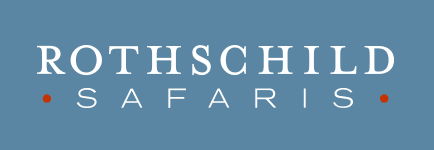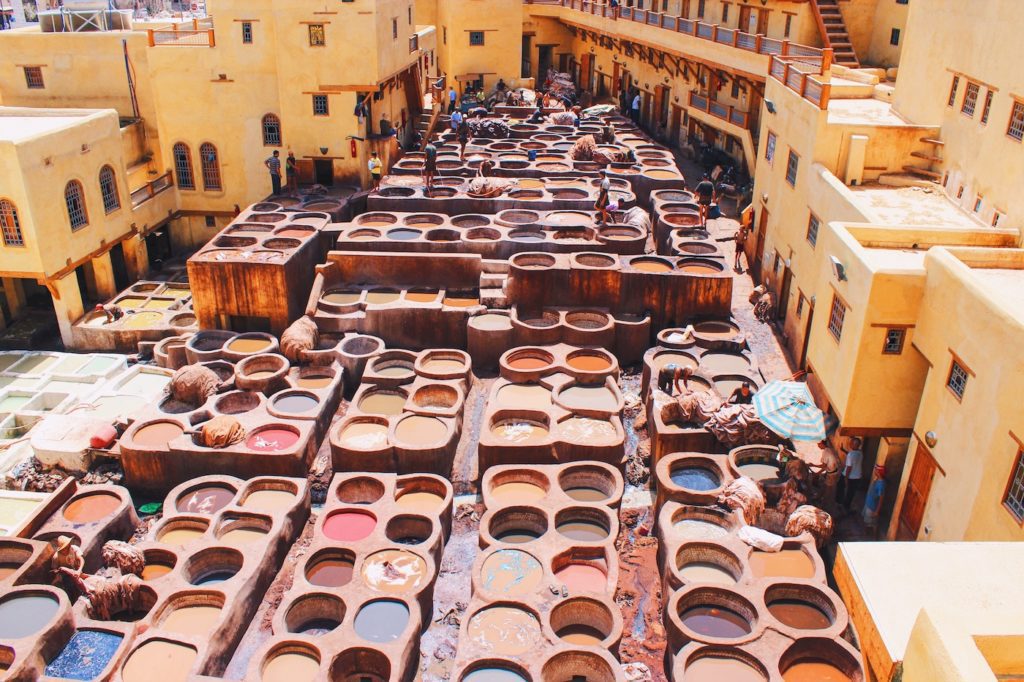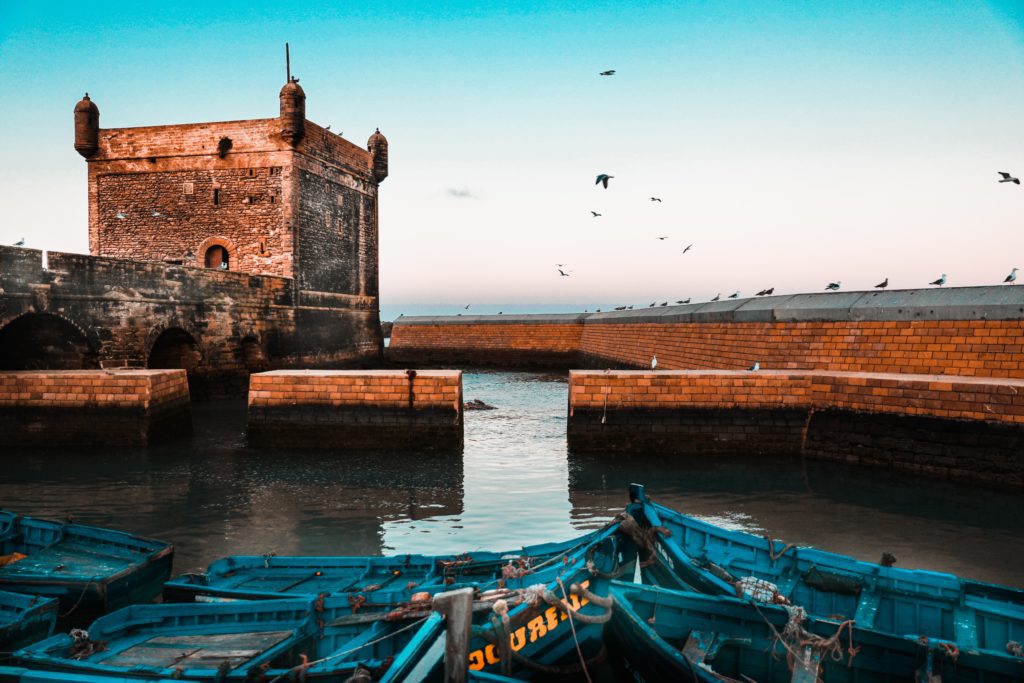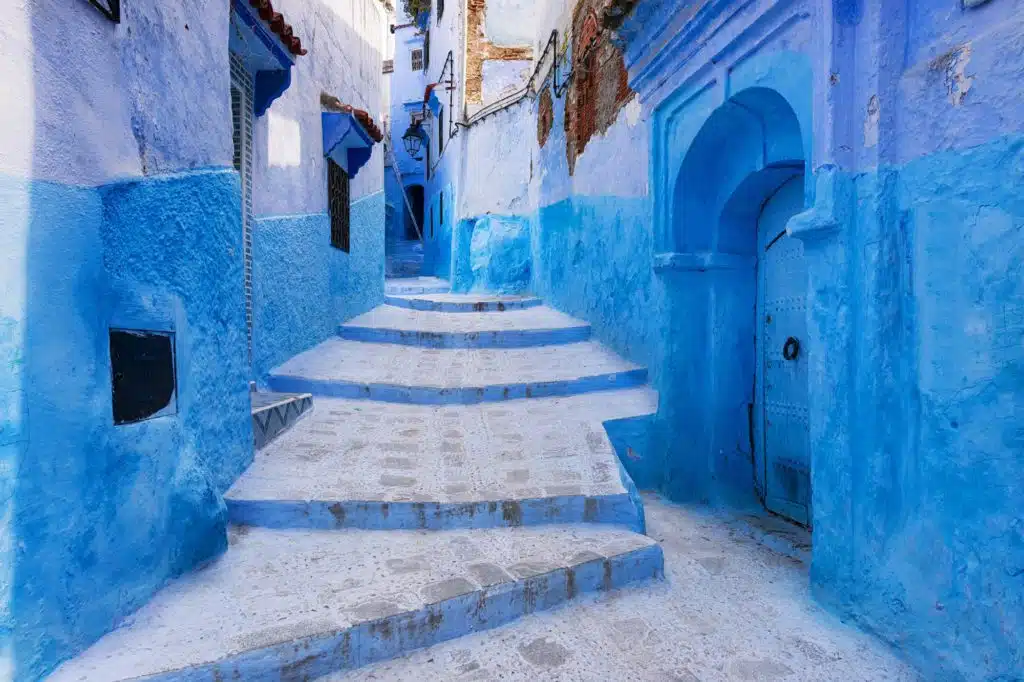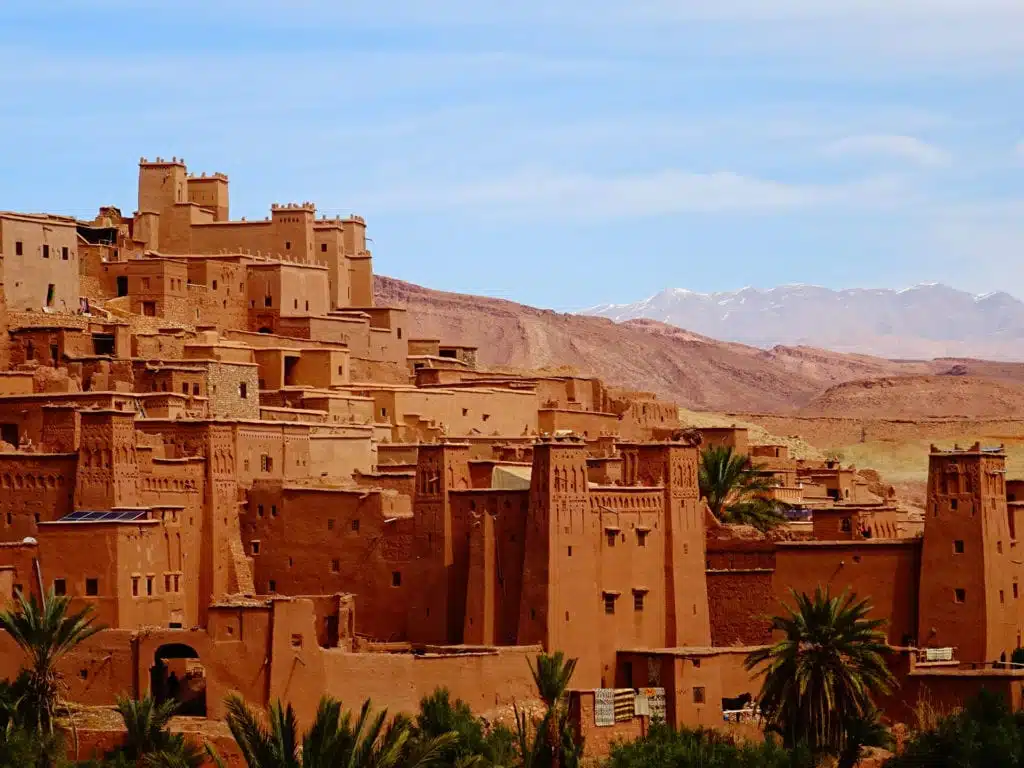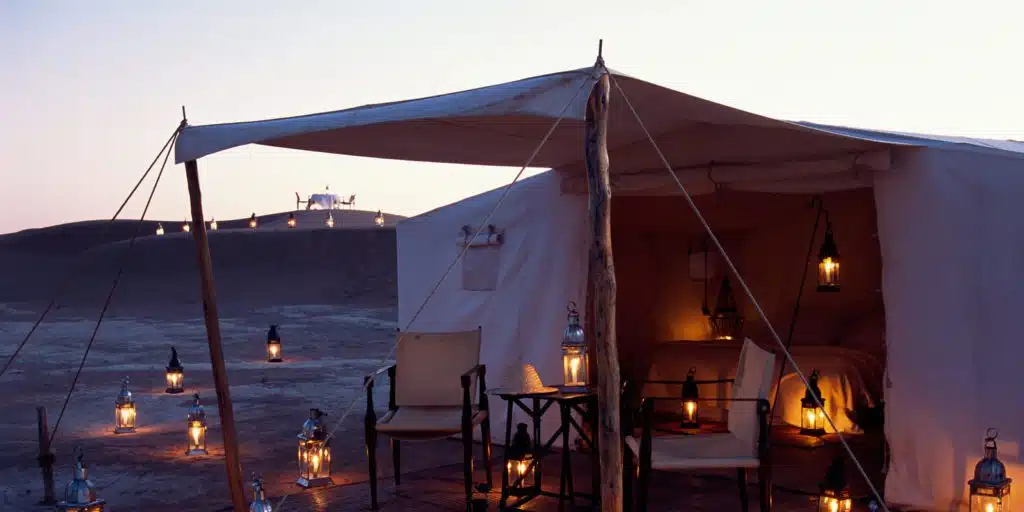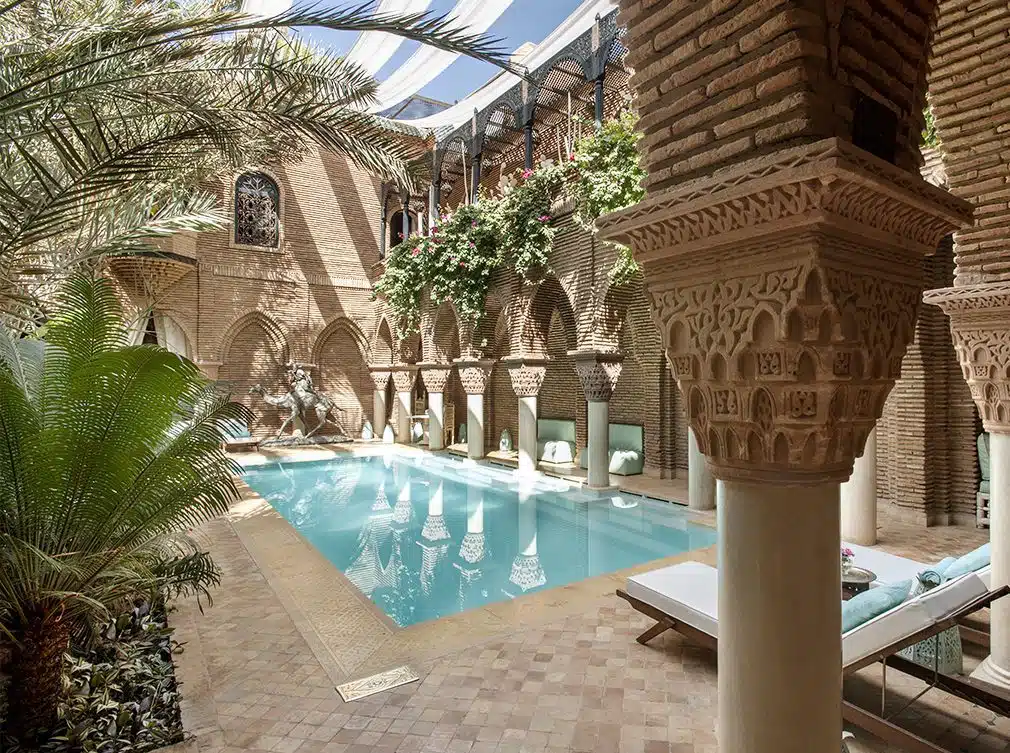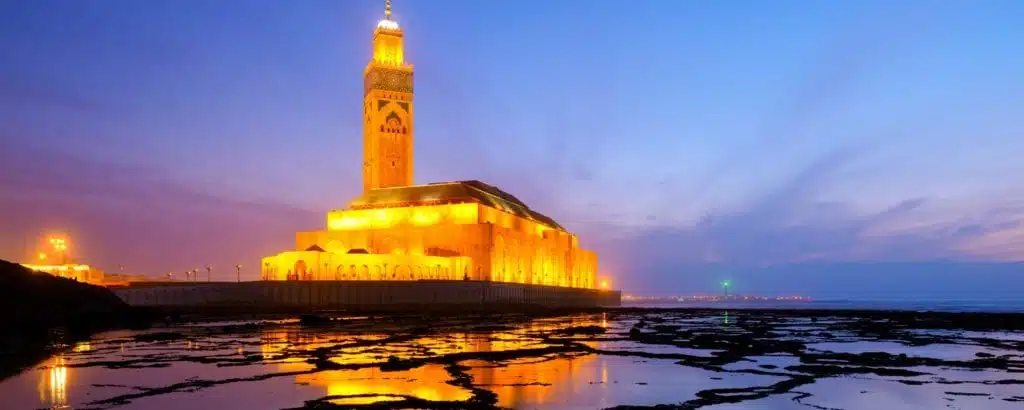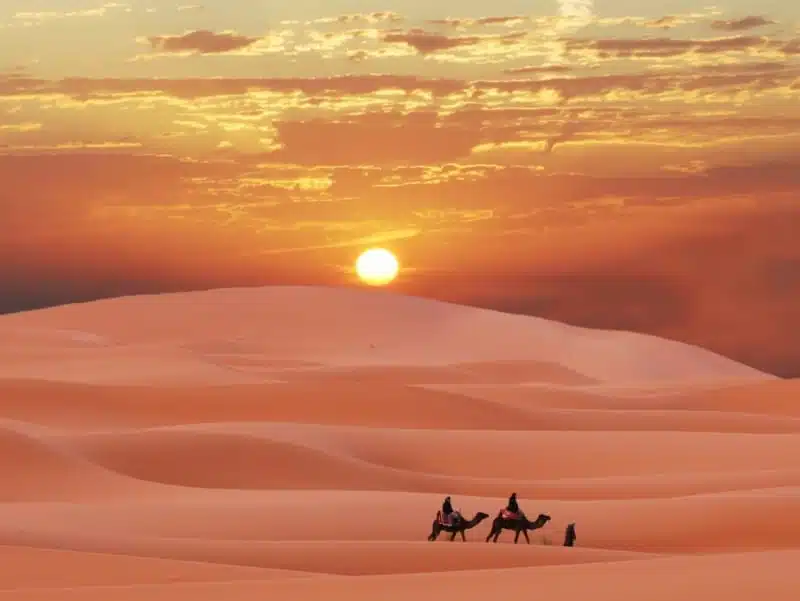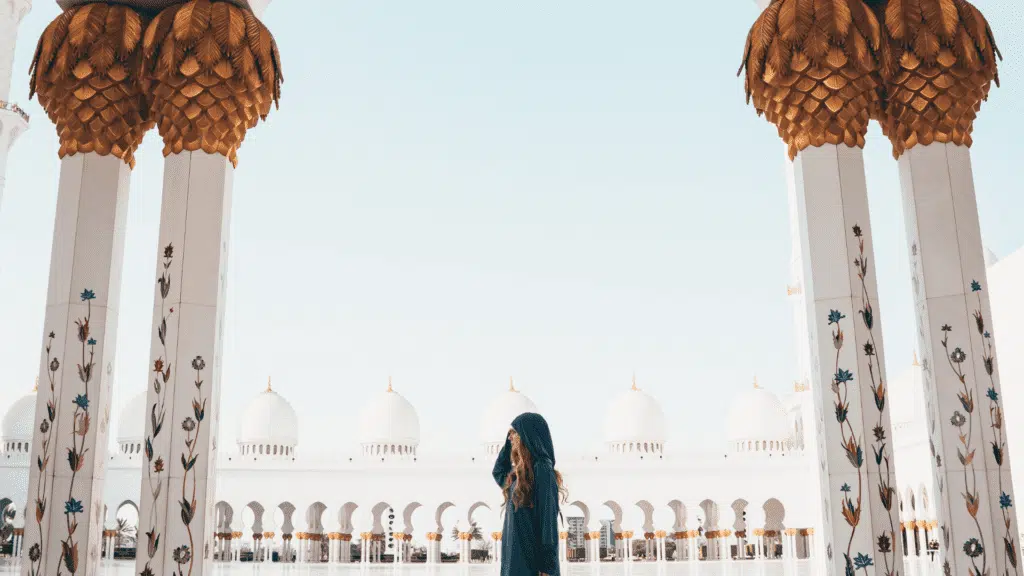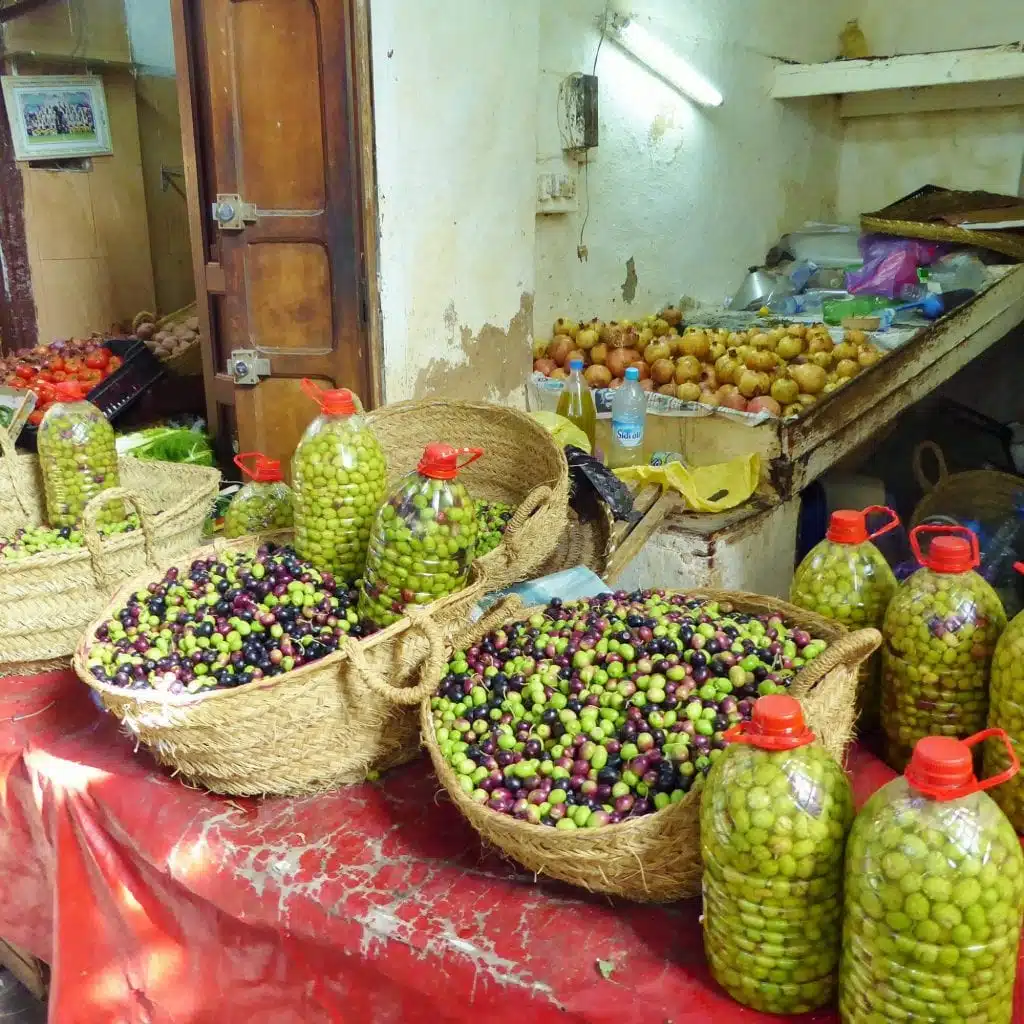HOW LONG SHOULD I SPEND IN MOROCCO?
One might achieve the quintessential Moroccan experience in a long weekend, a book-end to a safari in the more traditional sense. However, this contrast can be equally as complementary as it is jarring, and the glimpse into the wealth of Morocco’s appeal may make you wish you had longer. With the primary destinations scattered throughout the country, some travel will be required to capture a true sense of Morocco, and at least 10 days is highly recommended to achieve all you might wish to see and do on a luxury Morocco vacation.
WHEN IS THE BEST TIME TO VISIT MOROCCO?
Unlike some other countries, the wet season in Morocco coincides with the colder months. Lacking monsoonal downpours, ‘wet season’ is a generous term, but nights can get very chilly, so the months of November to February, in particular, are best to avoid. On the other hand, summer months can be stifling, climbing to over 100ºF (38ºC). The border months of March and April, and September and October are the most advantageous times to visit.
WHAT CAN I EXPECT FROM ACCOMMODATION IN MOROCCO?
In a word, excellence. Berber hospitality is ubiquitous, as is the fine attention to detail in service, facilities and architecture. While the more humble residences can be a little rustic, they still provide impeccable classical style and surroundings. Median accommodation is often well above the global average, and most venues feel like a tiny little palace all of your own. Exquisite tiling, regal archways, hand-carved doors and furniture and expertly engraved metalwork feature strongly throughout all levels of residence, forming a lasting and iconic impression.
OTHER DETAILS:
While you don’t require a visa for Morocco, you should consult your Travel Designer for any additional paperwork or onward travel details. Some inoculations are recommended for Morocco. We suggest you contact your travel designer or a travel medicine specialist for advice.
Some East Coast US airports fly directly to Casablanca and Marrakech. For other destinations, transit through an East Coast or European airport may be required.
Internal flights are available, though road and rail travel often take less time. The rail system is of an excellent standard and a wonderful way to see the country. Air-conditioned sleeping cars are available, and food and beverages are also available, though a little limited on board. Many of our clients opt to travel in a private vehicle by road, taking in the winding hillscapes and coastlines.
Linguistically, your guide will be essential at times. English is spoken in the tourist centres and more major destinations, with French also spoken in some regions. Arabic and Berber are predominant in rural regions, so a translator will prove invaluable.
Food is simply divine. Though much will cater to a Western palate and be perfectly acceptable to even the most fickle diner, we highly recommend you to be adventurous with your menu. Taking advantage of local produce and spices, Moroccans are masters of flavour and, regardless of what you may be eating, if you can overcome your more conventional eating preferences, your taste buds will thank you endlessly.
